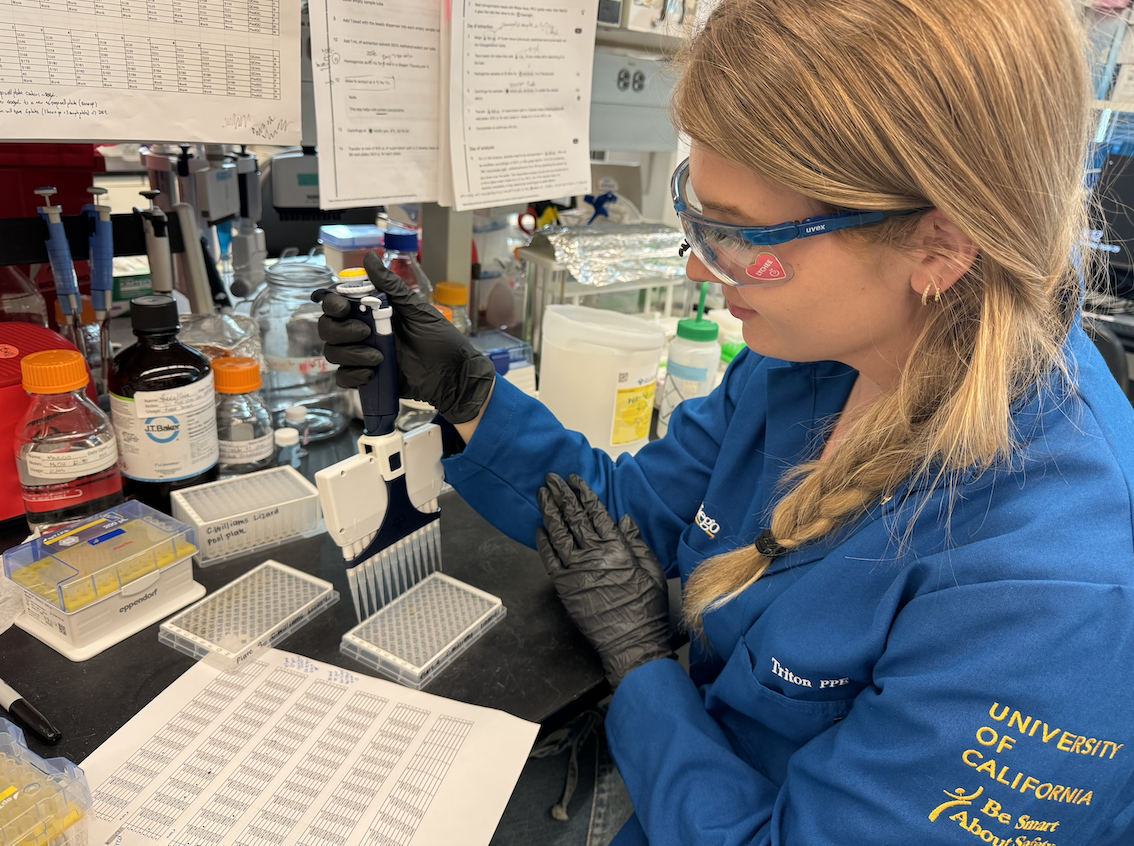Highlights
MSCollaboratory Overview
Studying aquatic ecosystems is essential to understanding Earth’s evolutionary history as well as unlocking many aspects that are key to maintaining the future of our planet, namely its climate, ecosystems, and resources. However, as over 95% of the world’s oceans remain unexplored, the drive to further our knowledge of aquatic symbioses strengthens. Founded by Professor Pieter Dorrestein and directed by Mauricio Caraballo, Ph.D., UC San Diego’s Mass Spectrometry Collaboratory (MSCollaboratory) works to democratize molecular analysis of marine symbiosis and diverse aquatic ecosystems using mass spectrometry approaches.
Funded by the Gordon and Betty Moore Foundation, the MSCollaboratory is focused on creating capabilities in metabolomics by providing hands-on training and access to mass spectrometry approaches and aims to accelerate the discovery of small molecules and their role as mediators of symbiotic relationships. With collaborators investigating a wide range of organisms and ecosystems, the MSCollaboratory has generated datasets from nearly 8,000 unique samples corresponding to fish (e.g., Gasterosteus aculeatus, Fundulus heteroclitus, Abudefduf saxatilis, Abudefduf troschelii), spotted salamanders (Ambystoma maculatum), squids (Euprymna scolopes), seagrass (Zostera marina), corals (e.g., Montipora, Porites rus, Acropora millepora) and other organisms and environments.
Since its establishment in September 2023, the MSCollaboratory has interacted with over 30 research groups across various universities across the world in a variety of aspects of the project, including sample preparation, sample submission, training with mass spectrometry, and data analysis. Furthermore, the MSCollaboratory has hosted workshops focusing on data analysis and untargeted metabolomics approaches for scientists in the global marine community. The MSCollaboratory thus aims to foster new collaborations and strengthen community connections to enhance knowledge and discoveries related to molecular data collection and aquatic symbiosis.
Visit the MassIVE repository (filtered by "mscollaboratory" under keywords) to access the datasets collected under the MSCollaboratory initiative.
Funding: https://www.moore.org/grant-detail?grantId=GBMF12120
Visitor Highlight - Claire Williams
Exploring How the Gut Microbiome Helps Lizards Adapt to Climate Change

As climate change continues to rise, understanding how organisms adapt to shifting environmental conditions becomes increasingly critical. Claire Williams, a PhD student at the University of Nevada, Reno, is tackling this challenge by investigating an unlikely yet vital factor in species adaptation: the gut microbiome. Focusing on tropical forest lizards in Panama—species highly sensitive to climate shifts due to their habitat in the temperate rainforest canopy and ectothermic physiology—Williams’ research explores how microbial communities in the gut influence thermal tolerance and survival.
Through a unique experimental approach involving the translocation of lizards to warmer islands in the Panama Canal, the study has revealed that microbiome composition is predictive of survival. This finding suggests that microbes could play a significant role in determining the evolutionary trajectory of species and shaping biodiversity in the face of warming climates.
During her two-week visit to the MSCollaboratory, Williams was able to advance her research, as she was able to process and generate metabolomic data from over 1,000 lizard fecal samples collected from Panama. Under the guidance of Dr. Mauricio Caraballo and the Dorrestein Lab, Williams gained hands-on training with mass spectrometry that deepened her understanding of data generation techniques and allowed her to explore the functional roles of microbes in much greater depth. In addition to learning how to prepare samples for metabolomics and operate mass spectrometry devices, Williams’ work with the MSCollaboratory provided a supportive and collaborative environment that enhanced both her personal and professional development.
Looking ahead, the visit has shaped Williams' future plans, emphasizing the value of collaborative, data-driven approaches. Now in the final year of her Ph.D., she is working to analyze the extensive dataset for a dissertation that integrates physiology, microbiome science, and metabolomics. Williams hopes to offer a holistic study, unlocking new insights into how gut microbes mediate climate resilience in tropical species and how such insights might inform broader conservation and evolutionary questions for generations to come.
